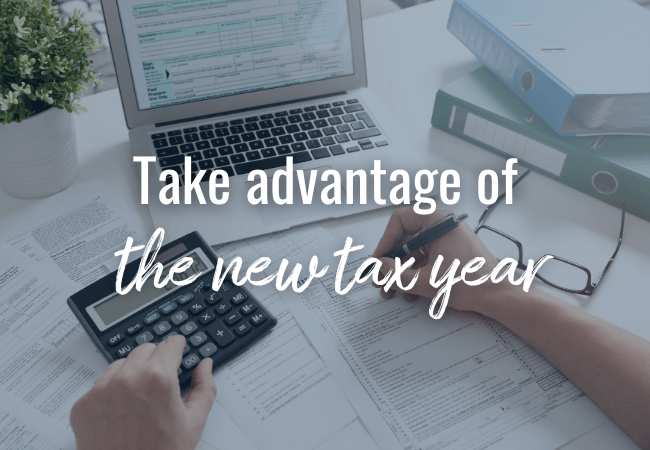A new tax year has begun and with it comes the chance to start your tax planning early, but why rush when there’s almost a year to go? Here are a few reasons why you should start you tax planning early:
- You can take advantage of various tax allowances available for the year, such as your Individual Savings Account (ISA) and pension annual allowances
- You’re likely to benefit from having your money invested for longer. Some interesting research¹ has found that an investor could potentially lose up to £25,000 over 25 years by investing the maximum into their ISA at the end of the tax year rather than at the start of the year
- If you can’t invest a lump sum, you can set up a regular payment into your ISA or pension, to spread the cost over 12 months
- By starting your tax planning early you can also avoid the last-minute rush, allowing you to get everything done in time
- You can establish a system for keeping track of all your income, expenses and other financial transactions throughout the year, helping you to budget
- There is time to research your options and get financial advice to make informed decisions when you start your tax planning early
Talk to us
Why not get the new tax year off to the best start and start your tax planning early? If you’d like help with planning for this tax year get in touch.
We are based in Eastbourne, East Sussex, but have clients (both online and in person) across the South East including Hastings, Lewes, Brighton, Bexhill, Uckfield, Heathfield, Newhaven, Seaford, Tunbridge Wells and further afield.
If you’d like more financial advice read our or speak to one of our friendly advisors.
Read our VoucherFor reviews here.
¹ Vanguard, 2023
The value of investments can go down as well as up and you may not get back the full amount you invested. The past is not a guide to future performance and past performance may not necessarily be repeated. The Financial Conduct Authority (FCA) does not regulate will writing, tax and trust advice and certain forms of estate planning.
It is important to take professional advice before making any decision relating to your personal finances. Information within this blog is based on our current understanding of taxation and can be subject to change in future.
It does not provide individual tailored investment advice and is for guidance only. Some rules may vary in different parts of the UK; please ask for details. We cannot assume legal liability for any errors or omissions it might contain. Levels and bases of, and reliefs from, taxation are those currently applying or proposed and are subject to change; their value depends on the individual circumstances of the investor.
The value of investments can go down as well as up and you may not get back the full amount you invested. The past is not a guide to future performance and past performance may not necessarily be repeated.
If you withdraw from an investment in the early years, you may not get back the full amount you invested. Changes in the rates of exchange may have an adverse effect on the value or price of an investment in sterling terms if it is denominated in a foreign currency. Taxation depends on individual circumstances as well as tax law and HMRC practice which can change.
The information contained within the blog is for information purposes only and does not constitute financial advice.






